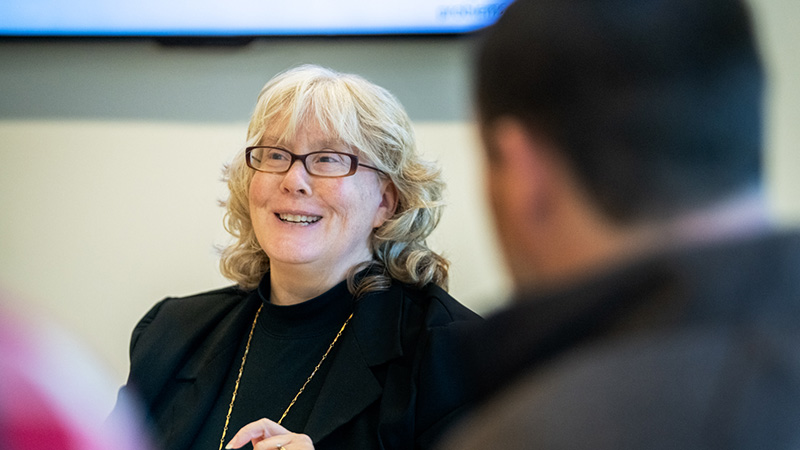
In addition to the MPP core curriculum, we require a minimum of three concentration-specific courses, allowing students to develop deeper knowledge in the specific language, literature and networks of a particular policy area.
The MPP program concentrations are linked to Heller’s renowned research institutes and centers. Our research activities provide students with new perspectives on how to impact social problems in a range of important areas, such as closing the racial wealth gap or fostering better inclusion into mainstream society for people with disabilities.
MPP Concentrations
MPP in Economic and Racial Equity
The Economic and Racial Equity (ERE) concentration for MPP students at the Heller School focuses on critiquing and addressing economic and racial inequities. Through quantitative and qualitative strategies, students evaluate social policies impacting marginalized communities, developing theoretical and empirical frameworks to understand and analyze wealth, power, opportunity, and social change.
MPP in Health Policy
The Health Policy concentration at the Heller School delves into the complexities of the U.S. healthcare system, offering insights into public health, healthcare delivery, financing, and reform efforts. Through a blend of coursework, internships, and research projects, students gain essential research and analytical skills, applying them to critical issues such as health disparities, access, drug pricing, and pandemic response. The concentration also provides an opportunity to focus on behavioral health issues such as substance use disorders or the harmful effects of tobacco or alcohol.
MPP in Social Policy
The social policy concentration is for students who wish to design a customized concentration in collaboration with an advisor. Under faculty supervision, students in this concentration select graduate courses from offerings at the Heller School, Brandeis University, and the Boston Consortium for Higher Education. The Heller School has cross-registration agreements with the Department of Urban Studies and Planning at MIT, the Graduate School of Business at Bentley University, Boston University, Boston College, and Tufts University.
Students in this concentration also benefit from access to Heller’s many research institutes and centers.
MPP in Women, Gender, and Sexuality
The Women, Gender, and Sexuality (WGS) concentration at the Heller School examines how gender, race, sexual identity, socioeconomic class, and culture shape social and economic outcomes and patterns of inequality. Using an intersectional framework, students analyze LGBTQIA+ issues and women’s social and economic positions, and critically assess the design, implementation, and impacts of policies and programs aimed at reducing gender- and sexuality-based disparities.
Heller School Research and Policy
The Heller School’s 10 research and policy institutes and centers are known for rigorous scholarship that improves the lives of vulnerable populations both locally and globally. A diverse portfolio of policy research is supported by over $20 million in government and private funding. Some of the topics that the research centers focus on include health; behavioral health; global health; economic and racial equity; disabilities; children, youth and families; philanthropy; and global development and sustainability.
The significant amount and quality of research is a rich resource for classroom experience and an opportunity for students working alongside faculty and researchers to be at the cutting edge.
